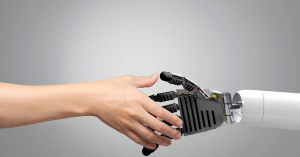Picking the right school group is very important for parents because it sets up how their kid will study more and get chances in life. In India, three main options are the Central Board of Secondary Education (CBSE), Council for Indian School Certificate Exams (CISCE), and Cambridge. They also have something called International Baccalaureate or IB as a choice. While government schools provide a common curriculum, these educational paths offer additional support by tailoring learning methods, teaching plans, and progress checks to each student’s unique needs, particularly at the middle and high school levels. This can have a big effect on where their school experience takes them in life as well as the work stuff they do later too!
Global Presence
CBSE is India’s biggest education board. It has 16,000 schools all over the world in 25 countries where it operates.
CISCE, even though not so widespread as others, is known for its tough program. There are about 2,213 schools in India that use it.
In India, 141 schools offer the International Baccalaureate. Of these schools, 118 have a Diploma Programme available for students to pursue. Cambridge has a broader reach than IB in India, with more than 310 schools following its curriculum.
Focus and Approach
CBSE likes old-fashioned learning, mostly memorizing facts especially maths and science. They get kids ready for tough tests to be an engineer or doctor. CISCE, IB, and Cambridge offer a more holistic approach, giving equal importance to humanities, sciences, mathematics, and languages.
Subjects
The CISCE teaches a complete plan that helps students with skills to think deeply and handle real-life situations. It pays special attention to English literature teaching. The CBSE program is built carefully, with many practical uses and thinking ideas mostly in mathematics and science. These topics are important for learning about the world around us.
The IB program gives motivation to students’ schoolwork and personal growth. It makes them think hard about different subjects, pushing their mind power beyond the limits of subjects set by schools or teachers for learning new things into practice in real-life situations.
Criteria of Assessment
The main goal for CBSE and CISCE is to grade kids based on their end tests. On the other hand, IB and Cambridge include ongoing testing. They pay attention to useful skills as well as theory knowledge instead of just one or the other.
Complexity/Difficulty Level
CISCE and Cambridge seem harder because their lessons are wide-ranging and detailed. CBSE, even though it is good for students, also has high educational standards. However, these rules are made to help the growth of young people and support their learning process while still asking them to achieve large goals in education.
Textbooks
All boards give various books and extra resources. CISCE and Cambridge are known for having a lot of helpful resources. which allows for an in-depth understanding of subjects.
Future Prospects
Each panel offers different options for further studies and job opportunities. CBSE is liked by students who want to prepare for Indian exams, while CISCE, IB, and Cambridge are chosen when they need education chances around the world or jobs.
Weighing the Scales: Choosing Between CBSE, ICSE, Cambridge Board, and IB
Parents need to think about their child’s likes or dislikes. They should also see how their kid learn best when deciding on the school system they want them in for studying. It is important to consider what these kids might have plans of doing later in life too! CBSE is good for students who want to take Indian exams that involve a lot of science and math. CISCE offers a fair lesson plan that also has strong language parts. IB and Cambridge offer classes for those looking to get a full education with a global understanding.
Parents need to think about their child’s choice and comfort. They should also see how their kid learn best when deciding on the school system they want them in for studying. It is important to consider what these kids might have plans of doing later in life too!









Be the first one to comment on this story.